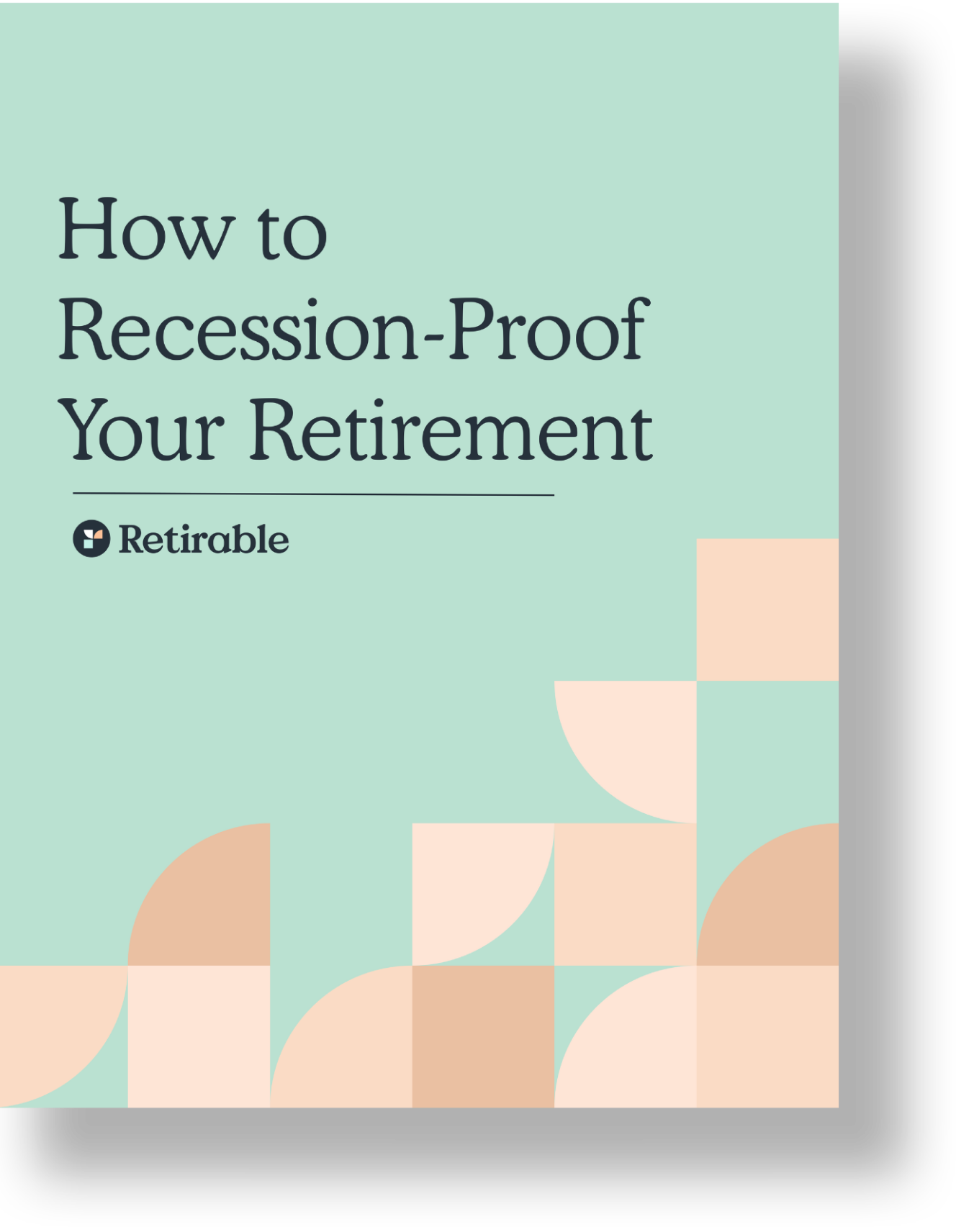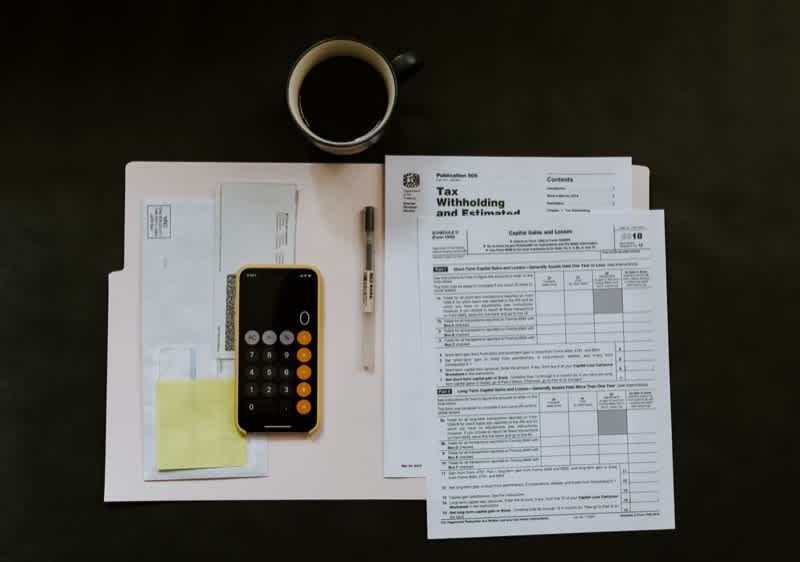Lifestyle
Retirement is a major milestone—and while the celebration can wait, there’s one thing you need to do first: write your retirement letter. Whether you're retiring after decades in the workforce or just a few meaningful years, submitting a formal retirement letter ensures a smooth transition for your employer and helps you leave on a professional note.

R. Tyler End, CFP®
•
Published March 6th, 2025
•
Updated May 7th, 2025
Table of Contents
Key Takeaways
A retirement letter should clearly state your last working day and express appreciation.
Keep your tone professional and sincere, and offer to support the transition.
Templates and examples can help guide your wording
Retirement is a major milestone—and while the celebration can wait, there’s one thing you need to do first: write your retirement letter. Whether you're retiring after decades in the workforce or just a few meaningful years, submitting a formal retirement letter ensures a smooth transition for your employer and helps you leave on a professional note.
This guide walks you through how to write a retirement letter, what to include, and how to tailor your message to reflect your role and relationship with your team. You’ll also find templates and examples that fit a wide range of situations—so you can spend time planning your next chapter.
What Is a Retirement Letter?
A retirement letter is a formal written notice informing your employer of your intention to retire. It functions much like a resignation letter but signals the end of your career or a major transition away from full-time work. This letter typically accompanies an in-person conversation with your manager or HR and becomes part of your employment record.
Writing a retirement letter is not just a formality—it's a professional courtesy. It gives your employer time to plan for your departure, begin the hiring process if needed, and arrange for your final pay, benefits, and paperwork. For you, it provides clarity, a paper trail, and a chance to express gratitude and leave with professionalism and grace.
When to Submit Your Retirement Letter
While there are no universal rules, it's best to provide notice well in advance. A minimum of two weeks is standard, but many retirees give one to three months' notice, especially if they hold leadership roles or want to support the transition.
Your company might have guidelines in your employee handbook, so always double-check. Providing ample notice not only shows respect for your team but also gives you time to finish projects and ease into your post-work life without last-minute stress.
Here are some common guidelines:
- Standard roles: 2–4 weeks' notice provides enough time for your employer to start planning.
- Management or long-term positions: 1–3 months' notice is often expected to allow proper succession planning.
- Specialized or high-responsibility roles: Consider giving up to 6 months’ notice if you're integral to major workflows or clients.
If possible, give your supervisor a heads-up before delivering the letter. This opens the door for a collaborative conversation and ensures you're aligned on expectations.
How to Write a Retirement Letter (Step-by-Step)
Writing a retirement letter doesn’t have to be complicated. Focus on being clear, appreciative, and professional. Here’s how to approach each part of the letter thoughtfully.
1. Start with the right greeting
Address your letter to your direct supervisor or manager. If your company has a formal HR process, include their department in the CC field. A respectful salutation such as "Dear [Name]" works well, even in more casual environments.
2. State your intention to retire
Begin your letter by clearly stating your plan to retire. This leaves no room for ambiguity. Use simple, direct language.
Example: “I’m writing to formally announce my retirement from [Company], effective [Last Day].”
3. Include your retirement date
Being specific about your final working day helps avoid confusion and allows HR to begin any necessary procedures. Place the date prominently—either in the first paragraph or as a standalone line.
4. Express appreciation
This is your opportunity to reflect on your time with the company. Whether it was a short tenure or a decades-long career, acknowledging positive experiences leaves a lasting impression. Consider mentioning mentors, team achievements, or career growth moments that made an impact on you.
5. Offer to assist with the transition
If you're open to helping with the handover process, include that here. This could mean documenting your responsibilities, recommending a successor, or training your replacement. Offering assistance shows you’re committed to a smooth transition and want to leave your team in a good place.
6. Mention benefits or final steps if needed
If there are logistical issues to address, like unused vacation time or benefit payouts, you can briefly mention them here. It's not required, but a short note lets your employer know you plan to follow up.
7. Add contact details (optional)
Leaving an email address or phone number lets your employer or colleagues reach out if needed. It's especially helpful if you're open to future consulting or freelance opportunities.
8. Close respectfully
Wrap up the letter with a professional and warm closing, such as "Sincerely," "With appreciation," or "Best regards."
Tips for Writing a Thoughtful Retirement Letter
Writing a retirement letter isn’t just a formality—it’s a chance to close a chapter with care. Here are some ways to ensure your letter hits the right note:
- Be sincere and professional. Even if you’re eager to move on, maintaining professionalism protects your legacy and relationships.
- Keep it concise. One page is sufficient. Say what matters without overexplaining.
- Avoid complaints or criticism. A retirement letter isn’t the place to air grievances. Keep it focused on appreciation and clarity.
- Match the tone to your relationship. If your workplace was formal, stick with a polished tone. If it was more casual, it’s okay to be warm and friendly.
Formal vs. Informal Retirement Letters
Your tone can vary depending on the work culture and your relationship with leadership. Here’s a breakdown to help you decide what fits best:
Use a formal tone if:
A formal retirement letter should be used when your workplace has clear hierarchies, you have limited personal rapport with leadership, or company policies require written professionalism. In these letters, stick to traditional structure and language.
Use a warm, informal tone if:
An informal letter works well when your relationship with your manager is personal, the company culture is relaxed, or you want to share memories and a bit of your personality. Just ensure that, even with warmth, your letter remains respectful and clearly structured.
Retirement Letter Templates
Templates are a helpful starting point. Choose one that best fits your tone and context, then personalize it.
Simple & Professional Template
Dear [Manager's Name],
I am writing to formally announce my retirement from [Company Name], effective [Last Day of Work].
I am grateful for the opportunities and experiences I have had here, particularly [mention something specific]. It has been a privilege to work alongside a dedicated team.
I am happy to help during the transition and assist in training my replacement.
Thank you once again for everything.
Sincerely,
[Your Name]
Personal & Warm Template
Hi [Manager's Name],
I wanted to let you know that I will be retiring from [Company Name] on [Last Day]. This has been a truly special chapter in my life, and I’m so grateful for the mentorship and friendships I’ve gained here.
I’m happy to support a smooth transition however I can. Please keep in touch: [Personal Email or Phone].
Warm regards,
[Your Name]
Real Retirement Letter Example
Dear "manager's name",
Please accept this letter as my formal notice of retirement from my position as Senior Administrative Assistant at "company name", effective September 30, 2025.
Over the past 18 years, I have been fortunate to work with an outstanding team and contribute to meaningful projects. I will always value my time here and the relationships I've built.
I’m available to support the transition process in any way that’s helpful. I’ve already begun organizing documentation and training notes.
Thank you again for the opportunity to grow and thrive at "company name".
Sincerely,
"my name"
How to Tell Your Boss You're Retiring
Before writing your letter, consider speaking with your manager privately. This conversation helps set expectations and shows professionalism. Here’s how to approach it:
- Choose the right moment. Find a time when your manager is available for a calm, private conversation.
- Be direct but respectful. Let them know your intention to retire and suggest a tentative last day.
- Express appreciation. Highlight the positives of your time at the company.
- Offer support. Make it clear you want to help with a smooth transition.
This conversation can also provide valuable feedback and allow your employer to begin planning for your departure immediately.
Retirement Letter Etiquette
Your retirement letter is part of your professional record. Small details matter in how it’s received. Here are a few etiquette tips:
- Choose the right delivery format. Some companies prefer printed letters; others accept email. Ask HR if unsure.
- Copy relevant people. Typically, this includes your manager and HR.
- Proofread carefully. Errors can appear careless. Give it a final review.
- Keep it positive. Focus on gratitude and moving forward, not grievances.
- Follow company protocols. Some companies require forms or formal retirement processes. Include your letter as part of those steps.
Frequently Asked Questions
What should I include in a retirement letter?
Your letter should include your retirement date, a clear statement of your intent to retire, expressions of gratitude, an offer to assist with the transition, and optional contact information.
How much notice should I give before retiring?
Two weeks is the minimum, but one to three months is preferred, especially for leadership roles or long-standing employees. Review your company’s policy to avoid missteps.
Should I send my retirement letter to HR or my manager?
Start by addressing it to your direct supervisor, then copy HR. This helps initiate the formal process while maintaining your manager relationship.
Can I write different letters to my boss and coworkers?
Yes. It’s common to write a formal retirement letter for management and HR, and a separate personal note or email to colleagues.
What if I want to retire early?
You can still use a traditional retirement letter format. Just be sure to provide adequate notice and coordinate with HR about any implications related to early retirement.
Share this advice

Tyler is a Certified Financial Planner® and CEO & Co-Founder at Retirable, the retirement peace of mind platform. Tyler has nearly 15 years of experience at leading companies in the wealth management and insurance industries. Before Retirable, Tyler worked as Head of Operations Expansion at PolicyGenius, expanding the company’s reach into new products — turning PolicyGenius into an industry-leading disability and P&C insurance distributor. Before working at PolicyGenius, Tyler worked as Wealth Management Advisor at prominent financial services organizations.
As an advisor, Tyler played an integral role in helping clients define goals, achieve financial independence and retire with peace of mind. Through this work, Tyler has helped hundreds of thousands of people get the financial planning and insurance advice they need to succeed. Since founding Retirable, Tyler’s innovative approach to retirement planning has been featured in publications such as Forbes, Fortune, U.S. News & World Report, and more.
Share this advice

Tyler is a Certified Financial Planner® and CEO & Co-Founder at Retirable, the retirement peace of mind platform. Tyler has nearly 15 years of experience at leading companies in the wealth management and insurance industries. Before Retirable, Tyler worked as Head of Operations Expansion at PolicyGenius, expanding the company’s reach into new products — turning PolicyGenius into an industry-leading disability and P&C insurance distributor. Before working at PolicyGenius, Tyler worked as Wealth Management Advisor at prominent financial services organizations.
As an advisor, Tyler played an integral role in helping clients define goals, achieve financial independence and retire with peace of mind. Through this work, Tyler has helped hundreds of thousands of people get the financial planning and insurance advice they need to succeed. Since founding Retirable, Tyler’s innovative approach to retirement planning has been featured in publications such as Forbes, Fortune, U.S. News & World Report, and more.
Retiring In The Next 3 Years?
Increase your monthly retirement income for simplicity, security, and peace of mind.





